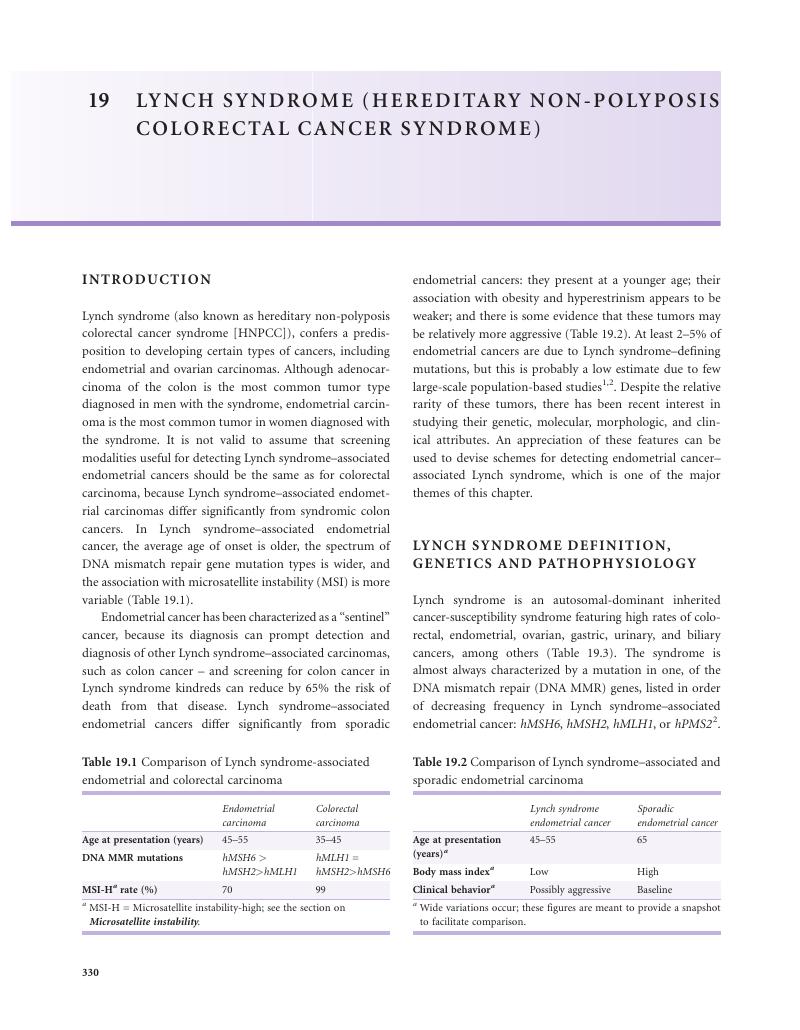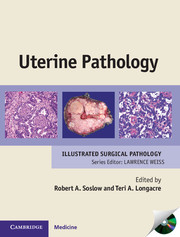Book contents
- Frontmatter
- Contents
- List of contributors
- Preface
- Acknowledgments
- 1 Cytology of the uterine cervix and corpus
- 2 Cervix: squamous cell carcinoma and precursors
- 3 Cervix: adenocarcinoma and precursors, including variants
- 4 Miscellaneous cervical abnormalities
- 5 Non-neoplastic endometrium
- 6 Endometrial carcinoma precursors: hyperplasia and endometrial intraepithelial neoplasia
- 7 Endometrioid adenocarcinoma
- 8 Serous adenocarcinoma
- 9 Clear cell adenocarcinoma and other uterine corpus carcinomas, including unusual variants
- 10 Carcinosarcoma
- 11 Adenofibroma and adenosarcoma
- 12 Uterine smooth muscle tumors
- 13 Endometrial stromal tumors
- 14 Other uterine mesenchymal tumors
- 15 Miscellaneous primary uterine tumors
- 16 Uterine metastases: cervix and corpus
- 17 Gestational trophoblastic disease
- 18 Other pregnancy-related abnormalities
- 19 Lynch syndrome (hereditary non-polyposis colorectal cancer syndrome)
- 20 Cytology of peritoneum and abdominal washings
- Index
- References
19 - Lynch syndrome (hereditary non-polyposis colorectal cancer syndrome)
Published online by Cambridge University Press: 05 July 2013
- Frontmatter
- Contents
- List of contributors
- Preface
- Acknowledgments
- 1 Cytology of the uterine cervix and corpus
- 2 Cervix: squamous cell carcinoma and precursors
- 3 Cervix: adenocarcinoma and precursors, including variants
- 4 Miscellaneous cervical abnormalities
- 5 Non-neoplastic endometrium
- 6 Endometrial carcinoma precursors: hyperplasia and endometrial intraepithelial neoplasia
- 7 Endometrioid adenocarcinoma
- 8 Serous adenocarcinoma
- 9 Clear cell adenocarcinoma and other uterine corpus carcinomas, including unusual variants
- 10 Carcinosarcoma
- 11 Adenofibroma and adenosarcoma
- 12 Uterine smooth muscle tumors
- 13 Endometrial stromal tumors
- 14 Other uterine mesenchymal tumors
- 15 Miscellaneous primary uterine tumors
- 16 Uterine metastases: cervix and corpus
- 17 Gestational trophoblastic disease
- 18 Other pregnancy-related abnormalities
- 19 Lynch syndrome (hereditary non-polyposis colorectal cancer syndrome)
- 20 Cytology of peritoneum and abdominal washings
- Index
- References
Summary

- Type
- Chapter
- Information
- Uterine Pathology , pp. 330 - 340Publisher: Cambridge University PressPrint publication year: 2012

